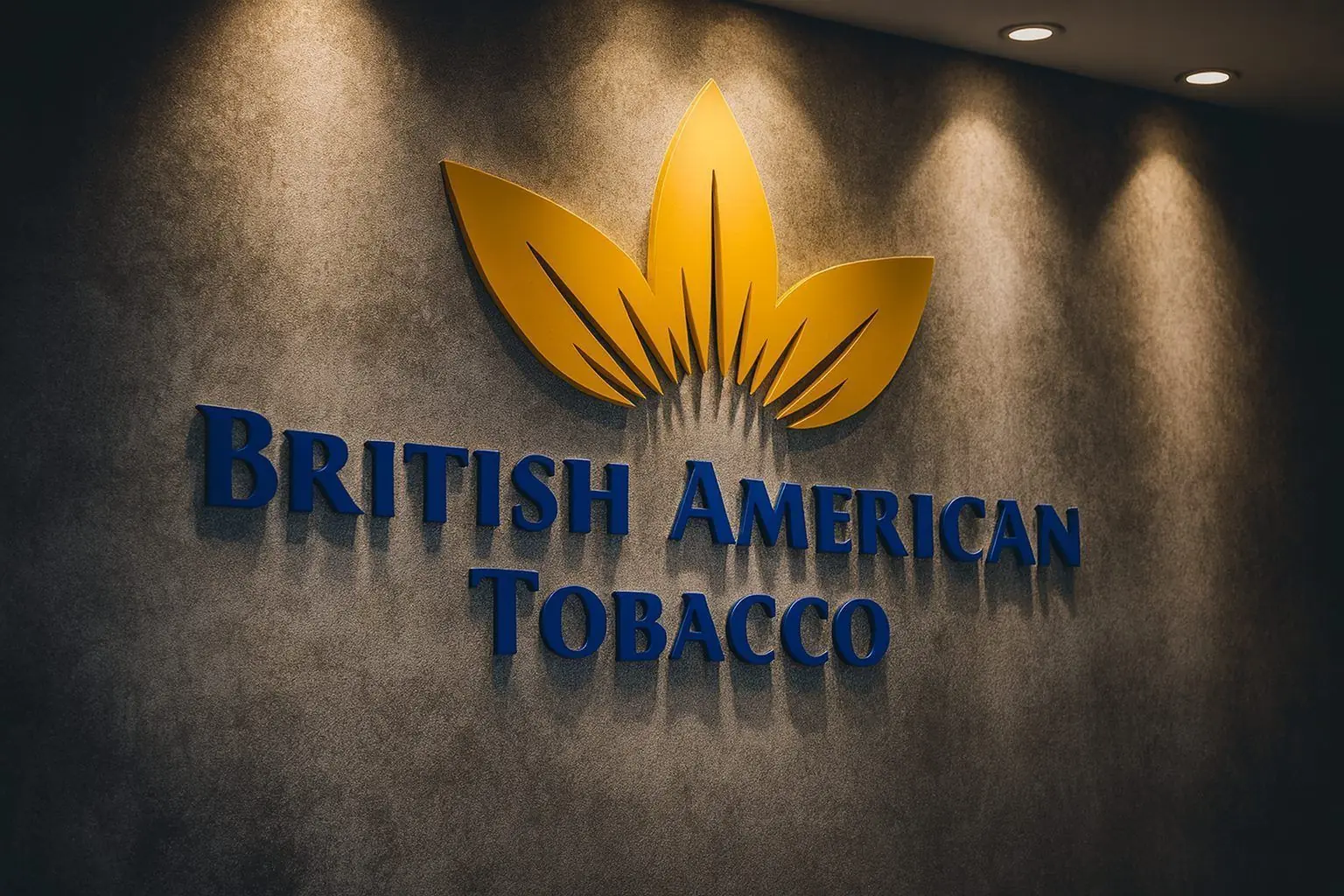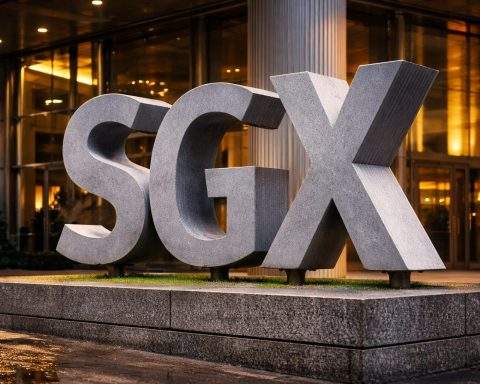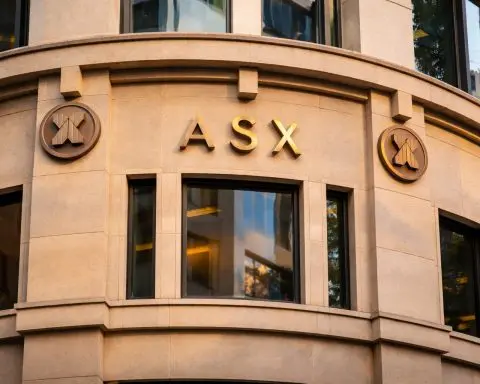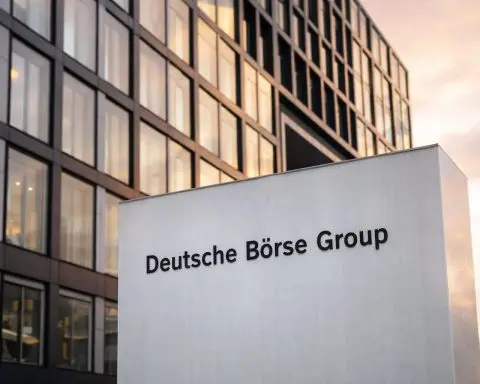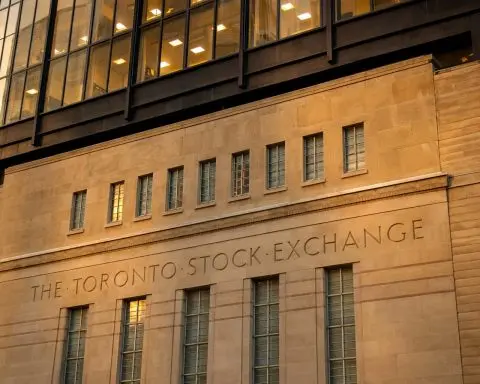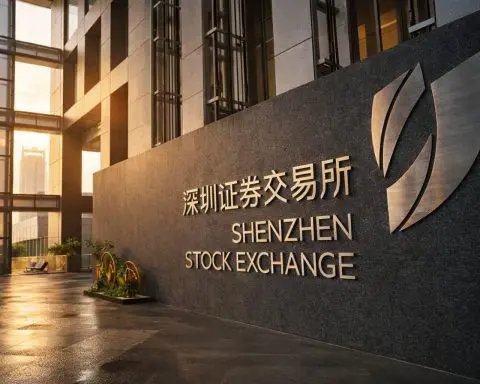British American Tobacco p.l.c. (LON: BATS, NYSE: BTI, JSE: BTI) stayed in the spotlight on Thursday, 27 November 2025, as the FTSE 100 slipped, a new buyback notice hit the tape and fresh valuation research suggested the tobacco giant may now be trading close to “fair value” – despite a huge rally this year. Reuters+2Simply Wall St+2
Below is a full round‑up of all the key BATS / BTI news and data points dated 27 November 2025, plus the context income investors and traders are watching.
BATS share price today: easing after a powerful 2025 rally
- Intraday move: By late morning in London, British American Tobacco shares were changing hands at around 4,308p, down roughly 1.1–1.2% on the day. That modest drop came as the FTSE 100 slipped about 0.3%, with consumer‑staples names such as Unilever and BAT among the biggest drags. London South East+1
- Index context: The selling followed the UK government’s tax‑raising budget, which hit sentiment in defensives and energy stocks and triggered some profit‑taking in recent winners like BATS. Reuters
- Recent performance: Even after today’s dip, the stock is still up over 11% in the past month, about 5% over the quarter and more than 50% over the past year, with Simply Wall St estimating a one‑year total shareholder return north of 55% and around 140% over five years. Simply Wall St+1
In short, today looks more like a breather than a trend change after a huge 2025 re‑rating.
New “Transaction in Own Shares”: 110,000 shares bought back
The main company‑specific news dated 27 November 2025 is another daily disclosure from BAT’s ongoing share‑repurchase programme.
A Stock Exchange News Service (SENS) announcement, reproduced by Moneyweb, confirms that BAT: Moneyweb
- Bought back 110,000 ordinary shares of 25p each on 26 November 2025
- Paid between 4,303p and 4,343p per share
- Achieved a volume‑weighted average price (VWAP) of 4,327.06p
- Intends to cancel all of these shares
- Will have 2,181,845,074 shares in issue (excluding treasury) after cancellation, with 132,998,352 shares held in treasury
At the VWAP, that one‑day purchase is worth roughly £4.8m (110,000 × £43.27). That’s on top of:
- 130,000 shares repurchased on 25 November, and
- 130,000 shares bought on 24 November, both at VWAPs just above 4,230–4,250p, as disclosed via London Stock Exchange and JSE filings summarised by Investegate and TS2.tech. Investegate+2TechStock²+2
Across those three days alone, BAT has retired 370,000 shares, returning well over £15m to shareholders via buybacks in less than a week.
Context: a £1.1bn 2025 buyback
A recent round‑up of South African corporate‑finance activity notes that BAT extended its 2025 repurchase programme by £200m in May, bringing the total amount targeted for buybacks by the end of this year to £1.1bn. The extension is being funded from proceeds of an earlier block sale of part of its stake in India’s ITC. ghostmail.co.za
Put simply: the buyback machine is still running hard into year‑end, and today’s SENS filing confirms that daily purchases are continuing at scale.
Is BATS fairly valued after the rally? New Simply Wall St view
A new piece from Simply Wall St, published on 27 November, tackles the question many investors are now asking: has British American Tobacco finally caught up with its fundamentals after the 2025 surge? Simply Wall St+1
Key takeaways from their analysis:
- Narrative “fair value” almost matches the market price.
- Latest closing price used: £43.57 per share. DividendMax
- Their most‑followed fair‑value narrative pegs intrinsic value at £42.67 – essentially “about right” against the market. Simply Wall St
- DCF model points to meaningful upside.
- Simply Wall St’s discounted cash‑flow (DCF) model puts fair value at around £60.90 per share, implying that the stock could be significantly undervalued if those long‑term cash‑flow assumptions prove accurate. Simply Wall St
- Risks remain front and centre.
- The article stresses ongoing regulatory pressure and structurally declining cigarette volumes as key risks that could challenge the bullish DCF scenario and cap valuation multiples. Simply Wall St
So on today’s numbers, third‑party models are split: short‑term narratives say “about right”, long‑term cash‑flow modelling still sees room for upside.
How BAT stacks up against Japan Tobacco: DefenseWorld comparison
Also dated 27 November, DefenseWorld published a head‑to‑head comparison of British American Tobacco (BTI) and Japan Tobacco (JAPAY), using MarketBeat data on valuation, profitability and risk. defenseworld.net
Highlights from that piece:
- Analyst ratings and targets
- Japan Tobacco currently has a slightly higher rating score (2.50 vs 2.38 for BAT) based on the mix of Buy/Hold/Sell recommendations.
- Consensus target price for BAT’s NYSE‑listed ADR (BTI) is $51.00, suggesting around 11–12% downside from recent levels, while Japan Tobacco’s target implies a smaller expected decline from its current price. defenseworld.net
- Dividends
- Japan Tobacco’s dividend yield sits near 2.2%,
- British American Tobacco’s ADR yields about 5.1%, reflecting its policy of high cash returns. defenseworld.net
- Size, earnings and volatility
- BAT generates higher revenue and net income than Japan Tobacco. defenseworld.net
- Both stocks have low betas (~0.38), meaning their share prices have historically been less volatile than the broader U.S. market. defenseworld.net
DefenseWorld’s scorecard concludes that BAT “wins” on 9 of 15 comparison factors – but notes that analysts currently prefer Japan Tobacco on expected upside, given where valuations and target prices sit today. defenseworld.net
Dividend story: 5.5–5.6% yield and an early‑2026 payout ahead
High income is still the biggest part of the BATS / BTI investment case, and several dividend trackers updated their data today:
- Quarterly structure fixed out to February 2026.
- BAT’s board has declared annual dividends of 240.24p per share for the year ended 31 December 2024, paid in four equal quarterly instalments of 60.06p in May, August and November 2025 and February 2026. bat.com
- Key dates for the current cycle (Payment No. 4):bat.com
- LSE ex‑dividend date: 29 December 2025
- Record date (LSE, JSE, NYSE): 30 December 2025
- Payment date (London & Johannesburg): 4 February 2026
- ADS (BTI) payment date in New York: 9 February 2026
- Yield today:
- DividendMax puts BAT’s current yield around 5.5% at yesterday’s 4,357p close. DividendMax
- Digrin and Simply Wall St show forward yields in the 5.5–5.6% range, with average dividend growth of roughly 3% annually over the last three years. Digrin+1
For investors considering buying on today’s weakness, the practical takeaway is that purchasing before late December should lock in eligibility for the February 2026 cash payout, subject to settlement timing and your local market’s ex‑dividend rules. (Always double‑check dates with your broker.)
Strategic and ESG backdrop: regulation, ITC selldown and talent moves
Today’s price and news are arriving against a rich backdrop of strategic change. Key threads investors are still digesting:
1. Balance‑sheet clean‑up via ITC stake sales
Earlier this year BAT began monetising part of its long‑held stake in India’s ITC, raising billions of dollars and using the proceeds to delever and fund buybacks, including the £200m extension to the 2025 programme mentioned above. ghostmail.co.za+1
That’s an important context for today’s SENS notice: the ongoing buybacks are not being funded purely from operating cash, but also from portfolio rebalancing.
2. New CEO for Organigram – and a BAT connection
A Business Wire release this week confirmed that James Yamanaka, formerly Global Head of Strategy at British American Tobacco, has been appointed CEO of Canadian cannabis producer Organigram Global, effective mid‑January 2026. Business Wire+1
For BAT watchers, this matters because:
- It highlights the transferability of BAT’s reduced‑risk and “New Categories” expertise into adjacent industries such as cannabis and wellness.
- It underscores how the company’s strategic talent is deeply embedded in diversification themes, not just traditional cigarettes – something investors often point to when justifying higher valuation multiples. TechStock²
3. Leadership churn: CFO change still in focus
Back in August, BAT shocked the market when CFO Soraya Benchikh stepped down with immediate effect after around 15 months in the role, prompting a brief share‑price wobble. Reuters+1
- Javed Iqbal, previously chief digital and information officer and a former finance head, stepped in as interim CFO while the search for a permanent replacement continues. TechStock²
- Coverage at the time noted that this came shortly after BAT’s half‑year results, which showed New Categories revenue rising and smokeless products approaching 20% of group sales, underlining the importance of stable financial leadership during the transition away from combustibles. TechStock²
With no new update on the CFO search today, investors are still waiting for clarity on who will steer the balance sheet and capital‑allocation strategy beyond 2025.
4. Regulation: Malaysia, US vapes and more
Recent weeks have also seen:
- Higher excise duties in Malaysia, prompting BAT’s local unit to raise cigarette prices from 21 November in order to protect margins while trying not to worsen the country’s already large illicit‑tobacco problem. TechStock²+1
- A pause in the rollout of some U.S. vaping products amid regulatory scrutiny, which could slow “New Category” revenue growth in BAT’s most profitable market. TechStock²
None of these items are brand‑new today, but they continue to shape how the market interprets every fresh buyback and valuation headline.
What 27 November 2025 means for BATS / BTI investors
Putting all of today’s news and data together, a few themes emerge:
1. Capital returns remain aggressive
- BAT is still retiring shares daily, with 370,000 shares bought back across 24–26 November alone and today’s SENS filing confirming another sizeable tranche. Moneyweb+2TechStock²+2
- Combined with a 5.5%+ dividend yield, the total cash‑plus‑buyback yield is very high for a FTSE 100 blue‑chip.
2. The valuation gap has narrowed – but may not be closed
- After a 50%+ 12‑month rally, one popular fair‑value narrative now pegs BATS as “about right” at current prices. Simply Wall St+1
- More bullish cash‑flow models still see substantial upside towards £60+ per share, but these rely on strong long‑term execution in reduced‑risk products and stable regulation. Simply Wall St+1
3. Dividend remains attractive but not risk‑free
- The next 60.06p quarterly dividend is locked in for early February, and the board has guided to continued quarterly payments. bat.com
- Coverage ratios are comfortable but not extravagant, and all of this is playing out against tightening health regulation and litigation risk, particularly in the U.S.
4. Relative to peers, BAT offers income and size, but less perceived upside
- DefenseWorld’s comparison shows BAT outperforming Japan Tobacco on most fundamental metrics, yet receiving slightly less favourable analyst upside based on current price targets. defenseworld.net
Bottom line
For 27 November 2025, the British American Tobacco story looks like this:
- The buyback conveyor belt is still running, with another 110,000 shares retired and total 2025 repurchases tracking towards a £1.1bn target.
- Today’s share‑price dip is more of a pause after a roaring 2025 than a collapse, amid broader FTSE 100 weakness in defensives.
- Fresh research from Simply Wall St and others suggests valuation is no longer an obvious bargain, although some models still see room for long‑term upside.
- For income‑focused investors, a 5.5–5.6% yield, quarterly dividends and ongoing buybacks keep BATS / BTI firmly on the radar – but the usual tobacco‑sector risks around regulation, ESG pressure and leadership stability have not gone away.
As always, this article is information, not investment advice. If you’re considering trading BATS or BTI based on today’s news, it’s crucial to do your own research and, where appropriate, speak with a regulated financial adviser who understands your objectives and risk tolerance.
